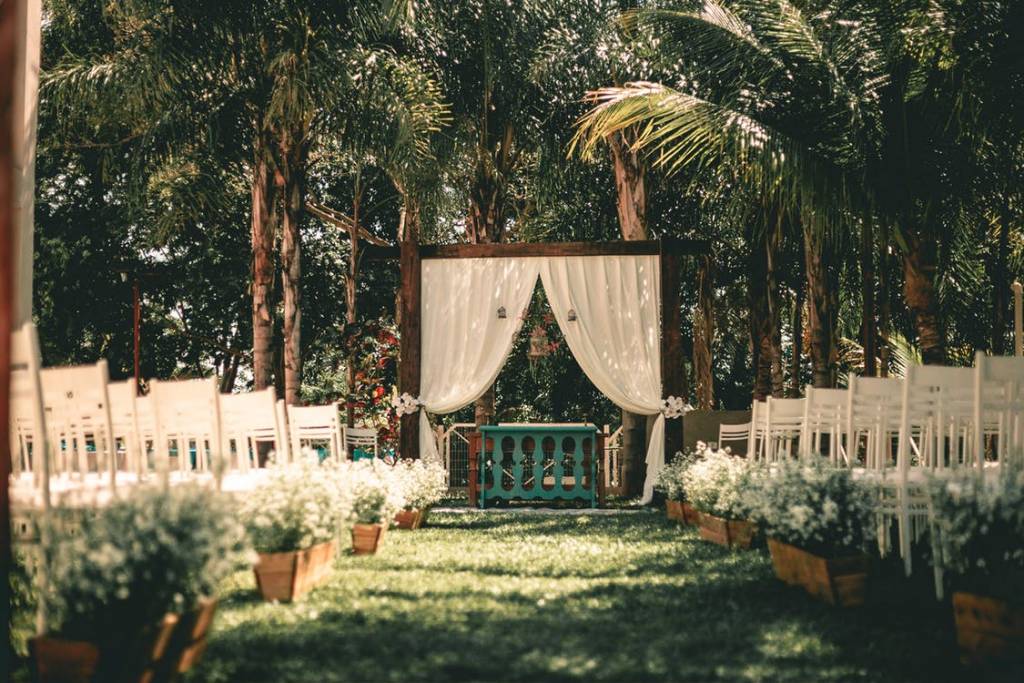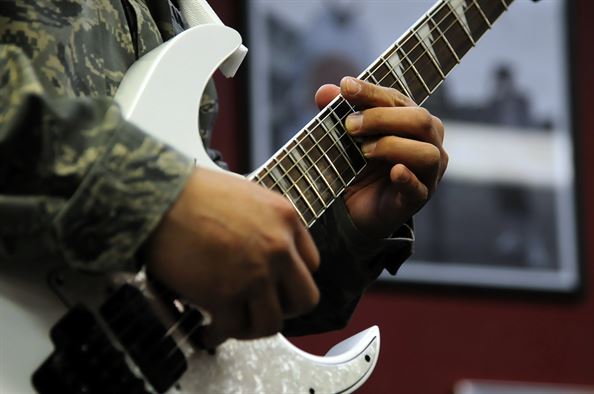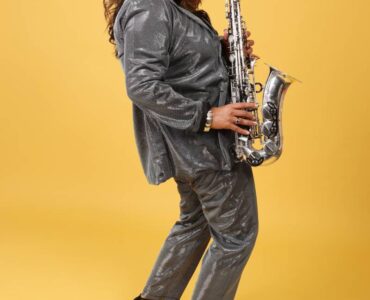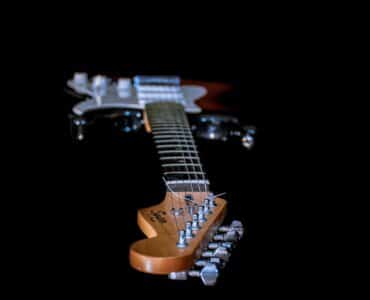Unless you are a professional event organiser, then this may very well be the first time you have ever had to book a band. There’s no doubt that the right choice of live music will add fantastic atmosphere to any event – but with so many options to choose from, how do you decide which style of music is right for you?
Lynden and Andrea Blades have been providing quality live music and musicians for weddings, parties and corporate events throughout the UK for over a decade. Here they share their top tips to guide you through the process of researching, sourcing and booking the perfect band for your day.
Choosing the right music for your event
The sky really is the limit when it comes to the choice and variety of band you can choose for your event – whether you prefer Jazz, Pop, Rock, Indie, Big Band, Motown, Soul, Ceilidh, Country and more. But with so many options, how do you decide which style will work best for you?
Top Tips
Keep in mind the nature of event you are planning – is it a corporate event, in which case something stylish and unobtrusive will work best? Is it a house party where a smaller band may be more suitable? Or perhaps it is a wedding, where you want to put your own personal stamp on things, while still catering to a broad range of ages and musical tastes?
Consider what part the live music will play in the event as a whole – Is music the focal point of your event (for example an evening wedding reception, a dinner dance, cabaret night or ball) or are you looking for live music to add subtle atmosphere (for example as a backdrop to a drinks party, sit-down meal, restaurant or casino night).
Visualise how the music will fit in with the theme of your event – If you’ve opted for a theme (Gatsby, Vintage, Hollywood or James Bond, 70s or similar) are you looking for music solely in that style or a something to appeal to a wider range of tastes?
Having a musical theme in mind is a great way to hone your search and can really pull an event together stylistically. At the same time too, consider whether you want to stick solely to that musical style for the entire event or whether it will be wise to include other musical genres as well.
Your venue – their music guidelines, restrictions and recommendations
Your choice of venue will play a key part in your choice of band so, before you book your band, make sure you check with your venue regarding any restrictions or guidelines around live music. Your venue may also be able to provide a list of recommended suppliers that will help you hone your search.

Top Tips
Check whether your venue has any amplification restrictions – some venues have noise limiters that the band has to plug into. This is absolutely fine for most bands, but very useful to know in advance. They know that if a set sound level is exceeded, then the noise limiter will automatically cut the power source – so they will know to play within the recommended noise range. Some venues may not allow live music in certain parts of the venue (for example outside or in certain rooms of an historic building.) In very rare cases you may come across a venue that will not allow amplified music of any kind. Don’t worry, this doesn’t mean you can’t have live music at all, but it may limit your choice of acts to those that don’t need to plug in or amplify anything to create their sound.
Find out what size of band your venue will allow – some venues put a limit on the number of musicians they will allow to play live at any one time. In some cases this can be as few as two or three musicians. It may also have a set performance space or stage area, which will have an impact on the size of band you can book. If you are worried your dream band may be too big for venue, all may not be lost though. Why not ask your band if they can provide a smaller line-up, perhaps by reducing the horn section or the number of backing vocalists.
Ask your venue if they have a recommended suppliers list for music – venues will invariably have a list of bands that they know and trust. These bands have the advantage of being familiar with the venue and you have the reassurance of knowing that they are tried and tested. Of course you don’t have to restrict you choice to just those bands on your venue’s list. As long as your chosen band meets the venue’s criteria the ultimate choice should be up to you.
Setting a budget, negotiating and more
Budget may well be a significant factor when it comes to selecting the band for your event, and particularly if you are paying for the band yourself. You should work within a budget-range that is realistic and affordable for you whilst ensuring you don’t compromise on quality or professionalism. But how much do bands cost? And how can you be reassured that you get the best possible band for a price you are comfortable with?

Top Tips
Compare like for like – Price is certainly one factor to consider when comparing different bands, so you will want to be sure you are crystal clear on what your band is offering for that fee. Like any service, the fees bands charge can vary significantly depending on their level of experience – from as little as £400-500 for a semi-professional group to £5000 or more for a top-drawer professional band. Some bands will charge a lesser fee but then add a surcharge for travel time, mileage, equipment, set-up, extra song requests etc. Others will charge a lower price but may then drop you like a hot potato if a better offer comes along.
Save money by using the same supplier to provide a range of services for your day – If you are planning an all-day event such as a wedding, then you may be considering booking several acts for the different parts of your day (music for your wedding ceremony, drinks reception, evening party etc.) Alternatively, you could look into booking one band to take care of everything for your whole day. Opting for one musical supplier will reduce the amount of time you have to spend liaising with your musicians and it could well save you money too, as bands often offer discounts for a package of services.
Be open to negotiation – if your dream band is above your budget, then by all means try to negotiate a reduced fee. If you are looking to cut costs without compromising on quality, then why not ask if they offer a smaller line-up or a reduced number of sets for a lesser fee. (Do keep in mind though that professional bands do incur a number of fixed costs – travel time and expense, set-up time, musician’s rates etc.) Rather than trying to negotiate a reduced fee, why not try getting greater value from your band – for example you could ask them for a slightly longer playing time for your evening, some additional daytime music, or a few extra song requests.
Talk to your band
While searching online is an invaluable tool to help you with your initial research, nothing beats picking up the phone and making direct contact with your prospective band. You can gauge a lot from a phone conversation that you may not necessarily get from an email exchange. Are they professional, amenable, friendly and on your wave-length musically? This is also a great opportunity for you to ask loads of questions. But what should you ask your band and what questions are they likely to have of you?

Top Tips
Have a list of key questions ready when you call – Most are pretty obvious (Are they available on your date? How much do they charge? What equipment do they provide? Can they add requests?) But there are others you may not have thought of – Do they offer different sizes of band? How long have they been performing together? Are they full-time or part-time musicians? What provisions do they have in place if someone in the band gets sick or can’t perform? Do they have PAT tests and Public Liability Insurance? Will they provide a contract of engagement?
Provide your prospective band with as much information as you can – The more information you can provide your band the more accurately and quickly they will be able to provide you with a quote, and the more reassured you will be that you are getting what you want for your event.
Useful information for your band when you first contact them will include: the date and approximate timings of your event; the venue/location of your event; the number of sets you would like them to provide; the number of guests; any additional services you may require such as microphones for speeches, an MC service, a DJ service etc.
See them live
A demo CD or DVD is a great starting point for making your shortlist of preferred bands – but absolutely nothing beats seeing your prospective band in a live performance. Seeing and hearing a
band before you book is your chance to gauge for yourself exactly how they will sound at your event, how they interact with each other on stage, their appearance and dress code, the quality
of their sound and lighting equipment and the all-important audience response.
Top Tips
Include other people in your decision – if deciding on the right band for your event is starting to feel like too big a responsibility then why not get a second (or third!) opinion. Make a night of it and take along a small group of family, friends or colleagues to see the band with you. Honest advice from people that you trust will be invaluable in reassuring you that you are making the right choice for your event.
Ask the band to play one or two special song requests – if you have a specific first dance in mind or a musical request that is especially important to your event then this is the perfect opportunity to judge for yourself how your prospective band will perform this song on your night.
Use the opportunity to discuss specifics – you’ve taken the time to go and see your band, and assuming you are happy with what you’ve seen, then this is the perfect opportunity to talk further about the finer details of your event and to address any questions or concerns you may have. Key questions to ask at this point could include: Will the line-up of the band be the same as I’ve seen tonight? Will the band need a changing room, storage area, hot food and drinks on the night? What happens if my event runs late, can I ask the band to stay later? What happens if I need to cancel or postpone my event or if the band cancels?
Book well in advance
Good professional musicians, like any top quality supplier, get booked up well in advance – in the case of weddings as much as two years ahead. Booking well in advance gives you the peace of mind of knowing you have sorted things, and depending on how far in advance you book, it can also save you money too as you will secure a fixed price at the time of booking.
Top Tips
Get things in writing – A professional band should provide you with a contract of engagement that will outline everything they will be providing for your event, and also what they may expect of you as the client. A contract of engagement should clearly state:
• The service to be provided (for example an agreed number of live
sets to be performed over an agreed time-frame)
• The full fee to be charged to you the client (including VAT if applicable)
• The band’s payment terms (for example whether a deposit is required
to secure the booking, when the full fee is payable and preferred
payment methods – cheque, bank transfer or cash)
• The equipment the band will provide (sound equipment, instruments,
lighting etc)
• Whether they are supplying additional recorded music or a DJ service
between sets
• Any food and/or drink requests for the musicians (many bands will
request a hot meal and soft drinks as part of their contract but this is
something you can negotiate at the time of booking)
• Their Cancellation/Postponement policy (a percentage of the
outstanding fee may be payable as agreed in your contract)
The final countdown
Ok, so you’ve done your research, you’ve seen your band live and spoken to them at length, you’ve been completely reassured of their professionalism and track record and now you’ve booked them for your event. Fantastic! But what happens next? How often should you be in contact up until the event? Is there is anything else you need to discuss before the day?
Top Tips
Let your band know any special song requests well in advance – professional bands will have no problem at all adding your song requests to their set. You should clarify how many requests they are happy to learn and also how much advance notice they will need (4-6 weeks is about the norm.)
Timings and set-up on the day – be sure to let your band know the confirmed timing for your event at least a couple of week’s in advance. They will want to know what time they can (or are required) to set up, any issues with access or parking, their start and finish time on the day. If you are providing food for your band on the day then it’s helpful to let them know when and where they will be eating.
Check contract details and final payment – some bands require that their fee is settled in full in advance of your event, while others are happy to be paid the final balance on the night itself. If you are paying on the night (and particularly if you are paying by cash) then make sure it is kept safe with someone you trust until you hand it over.
LEARN MORE ABOUT SAX & HONEY
Visit their profile here: Sax & Honey »
Do you have any top tips for planning live music? Make sure to post them in the comments below!
Share this:




















